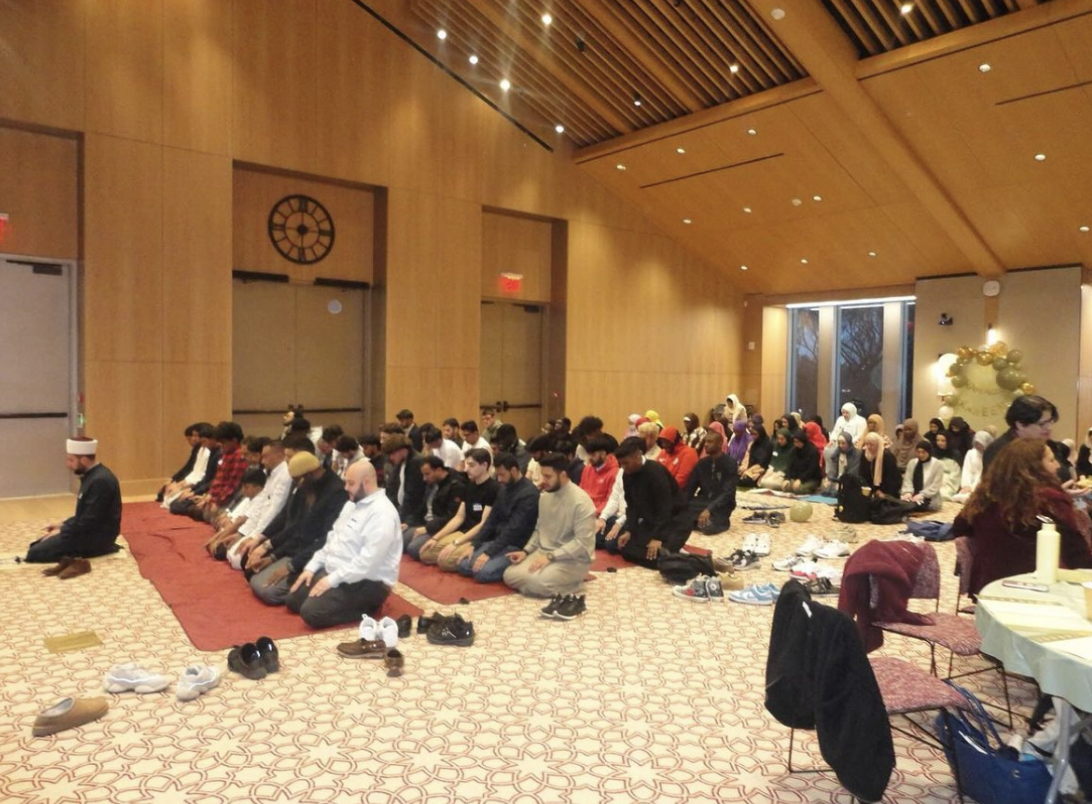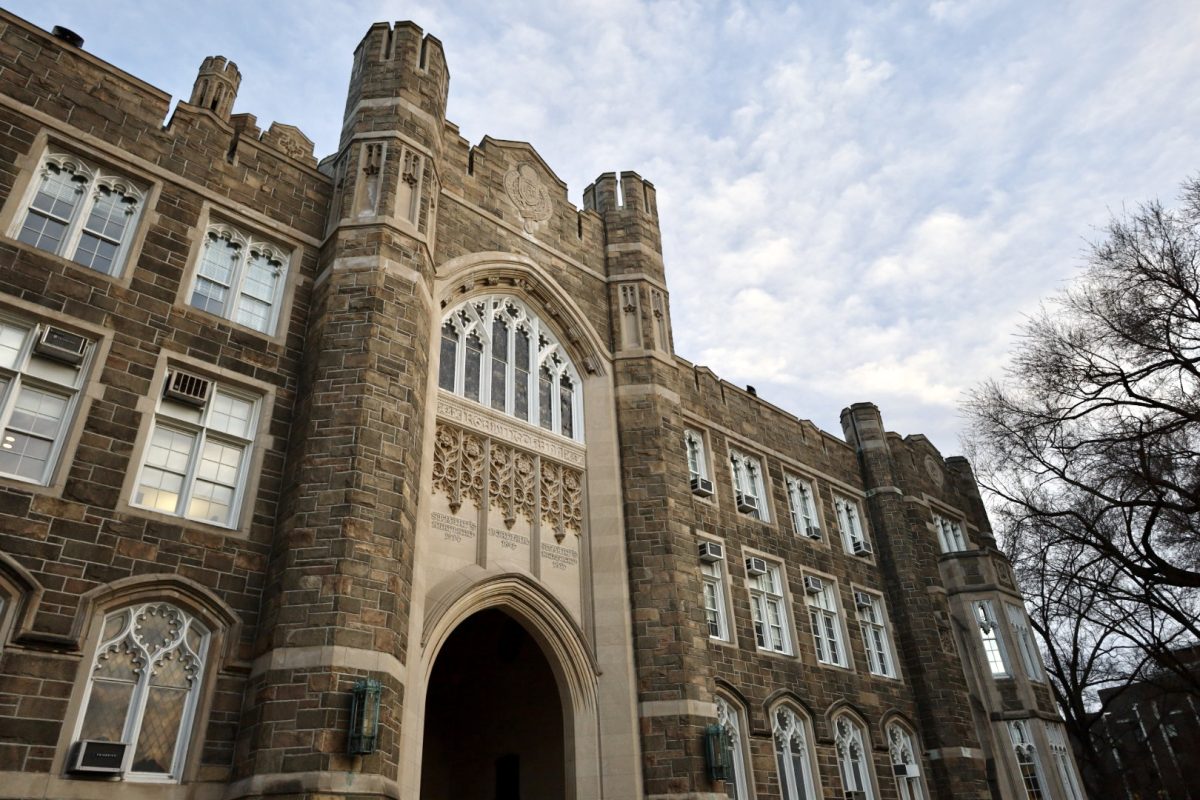Ramadan, the ninth month of the Islamic calendar, holds profound significance for Muslims worldwide. Beyond its roots in abstaining from food and water during daylight hours, Ramadan is a time of prayer, self-reflection and spiritual growth. The month commemorates the initial revelation of the Holy Quran and signifies a period of sacrifice and devotion. At Fordham University, the celebration of Ramadan has extended beyond personal observance, with the school making large efforts to foster an inclusive environment where students can come together to embrace the essence of this sacred month.
Translated from Arabic, the word “Ramadan” originates from the term for “scorching heat,” symbolizing the immense sacrifices made by Muslims during this holy period and those before us. The fasting ritual serves as a demonstration of discipline, self-control and empathy for those less fortunate, as donations are made to the poor every year. However, the significance of Ramadan transcends mere abstention from food and water; it is a transformative journey that encourages participants to refrain from negative behaviors, such as using foul language or engaging in harmful activities. Every year, I try to set a goal for myself: one thing to add and one thing to cut out in my life, an addition and a subtraction. This year, I have been trying to add praying all of my sunnah (or non-obligatory) prayers and have tried to subtract the time I spend on social media and entertainment. Especially with the ongoing travesties currently affecting Muslims all over the world, particularly in the Middle East and Gaza, the importance of the month is amplified as one of empathy, compassion and charity.
As a first-year student whose faith has always been very important, I was nervous about Ramadan, as it had always been a time of community for me back home. From long nights spent in prayers known as Taraweeh to spending time with my friends and family at the mosque, it has always been my favorite time of the year. Because of this, I was pleasantly surprised by Fordham’s active recognition and celebration of Ramadan through various events organized by the Muslim Students Association (MSA) on campus, as well as the broader university community. One highlight so far has been the annual Spring Welcome Dinner hosted by MSA, which featured an insightful lecture and introduction to Ramadan for all students, regardless of faith, engaging activities and a dinner with Middle Eastern food. This event not only educated attendees about the significance of Ramadan but also provided an opportunity for cultural exchange and mutual understanding. Imam Jaleel Jaffar, a respected figure in the local Muslim community, was one of the speakers, and he shared with us wisdom about the spiritual aspects of Ramadan as well as a basic introduction to what it symbolizes. The event was organized very well, featuring a diverse array of Middle Eastern food and desserts and even a Ramadan trivia session, adding an element of fun and competition, which I always appreciate.
Campus Ministry has also made large strides, such as featuring a table in the McShane Campus Center to educate people about the sacred month, with featured decorations, information and a daily calendar. Additionally, Ram Dining has also been cognizant of Ramadan and features to-go boxes in places like Queen’s Court Deli and BKG, which I have found especially helpful when in a rush to open my fast or for eating suhoor, which occurs at dawn, a meal eaten before the sun rises. However, as a student on the meal plan, I wish there was an opportunity for me to use my pre-paid meal swipes for such items, as they’re mostly going to waste because most dining places on campus close in the hours where eating is permissible.
However, the most remarkable testament to Fordham’s commitment to inclusivity was the university’s own Iftar dinner held on the March 14, sponsored by various departments and organizations including Campus Ministry, Mission Integration, the Center for Community Learning, the theology department, the Islamic studies department, the Office of Multicultural Affairs and the Rose Hill MSA. This event provided an opportunity for students, faculty and staff to come together, breaking bread in the spirit of unity and understanding. The event featured speakers from ICNA, the Belmont Islamic Center and the head of the Islamic studies department at Fordham.
Throughout the event, I felt welcomed and celebrated as we awaited the adhan, or the call to prayer, to break our fasts with dates. We prayed side by side behind the Imam, ate together and had conversation over the spirit of Ramadan and our favorite Iftar foods. Following the event, there was even an unofficial Taraweeh prayer held on Eddie’s, as the night came to a close.
This was a monumental event, the first of its kind, and truly represented the steps that Fordham has been taking to celebrate multiculturalism and diversity. After reaching out to the MSA board for a statement, they reflected these testaments, stating, “The Fordham in Community Iftar was a beautiful event that really showed our university’s commitment to inclusivity. Opening our doors to non-Fordham students for the first time at an MSA event was a meaningful step toward greater community engagement. It was truly heartwarming to see so many members from our campus and the broader Bronx community come together with such enthusiasm to break fast and celebrate the spirit of Ramadan. We hope to continue this tradition in future years and develop stronger relations with our Bronx neighbors.”
Fordham’s acknowledgment and celebration of Ramadan is one that continues to evolve as the years progress. Through such events with the MSA and university-sponsored initiatives like the Iftar dinner, students at Fordham, including myself, have found a supportive and understanding community during this sacred month. As the university continues to embrace and honor various cultural and religious traditions, it reinforces the idea that education is not just about academics but also about fostering a sense of belonging and shared humanity.







































































































































































































